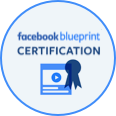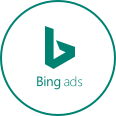
While you may think there is one keyword match type to rule them all, no type is actually better than another. Using keyword match types is actually more about leveraging several options at various price points so you enjoy the best results possible. Let’s dive into the AdWord match type world to learn more about each option and how to harness its biggest rewards.
Broad Match
Want to reach the widest audience? Of course you do, and broad match is here to make this possible. It is the default ad type that makes your ads eligible to appear in a consumer search when the person types any of your keywords in any order. If one of your keyword phrases is “quick auto service” your ads will come up in searches for “quick car services,” “auto service,” “auto service near me,” “fast auto service near me,” and similar searches if you have broad match turned on. Google may also match your keywords to synonym-driven searches such as “car repair in my area.”
Since you don’t want users clicking on ads that have nothing to do with your service and costing you unnecessary marketing dollars, keep an extremely keen eye on your search reports when using broad match. Should the results not be what you want, move on to other keyword match types.
Modified Broad Match
If broad match and the more specific keyword match types on this list came together, they would form modified broad match. This keyword type offers the same wide audience range services but with a little more control. Modified broad match lets you determine who sees your ads by locking certain words in keyword phrases via the “+” symbol. A plus sign addition before your keyword, such as +anti-aging spa services or anti-aging+spa services, instructs Google to feature that term in the search query.
Use modified broad to avoid unnecessary ad clicks and allow users to find your services or products more easily.
Exact Match
Exact match wins the bid for “Most Restrictive & Specific Keyword Match Type.” Once upon a time it only provided ads searches that matched keyword phrases exactly, but that came to an end when Google team members realized exact match left no room for abbreviations or misspellings. The search engine now offers an exact match with a little help, as ads may appear for variations, plurals, and synonyms of the keyword. This is known as “close variant marketing” and gives you the extra edge necessary to matching your keywords with your target audience.
Phrase Match
When a user looks up one of your keyword phrases in its exact order with a few words before or after it, your ads appear. They appear, that is, if you use phrase match, the keyword match type that focuses on exact keyword phrases with a little extra on one or either end.
Let’s say your keyword is “motorcycle accessories.” If you use phrase match, your ads will come up in searches for “discount motorcycle accessories,” “motorcycle accessories near me,” “[name brand] motorcycle accessories,” etc. Phrase match subsequently gives you the wide range of broad match with the best part of exact match.
Negative Match
Knowing what searches you don’t want your ads to appear in is another facet of effective online marketing. If you sell baby products, for example, you do not want to show up in a search for Emma “Baby Spice” Bunton. Negative match ensures your ads do not appear in queries that have zero to do with your brand. These match types come in three convenient forms:
- Negative Broad Match: Think of negative broad match as the exact opposite of broad match. It makes it possible to stop your ads from appearing when negative keywords are searched.
- Negative Phrase Match: Your ads will not show if the search includes the exact keywords. For example, if your negative keyword phrase is “silver heels,” your ads would not show up in a “heels silver” search.
- Negative Exact Match: If the search query is your exact negative keyword, your ads will not show up. However, your ads will show if extra words are added to the beginning or end of the keyword phrase.
Wrapping Up
AdWord match types play a significant role in your search ad results. Think of them as the wheel in your online marketing vehicle, as they allow you to control who sees your ads to help you bid on search queries that result in more website traffic, conversions, and revenue. Remember to look at how a keyword phrase has performed to help you determine which match types offer the biggest return on investment. You should also look at how your competitors’ search terms are performing, as well as the cost per click and cost per conversion. Bids have huge roles in both of these costs to help you find the best match types for your needs.
Finally, consider your account structure and ad text as you select keyword match types. It’s not uncommon for marketers to have a golden keyword phrase they use in broad, exact, and phrase match types, some of whom section their types further to write specific ads for each one. How you decide to structure your account also factors in, such as running a few broad-themed campaigns at a time, using landing pages and negative keywords, and creating ad groups.
Use keyword match types to put your brand in the minds of your target audience minus the unnecessary ad clicks and expense. It may take a little trial and error, but the more you familiarize yourself with match types, the more you will understand how, why, and when to use them. You’ll even learn a few money-saving techniques, such as taking advantage of negative keywords.
Watch your ad campaigns flourish with help from our knowledgeable and friendly team. At Softline Solutions, we have the tools, know-how, and the experience to help your business grow and thrive. Give us a shout today–it’s our job to make your professional life easy.









